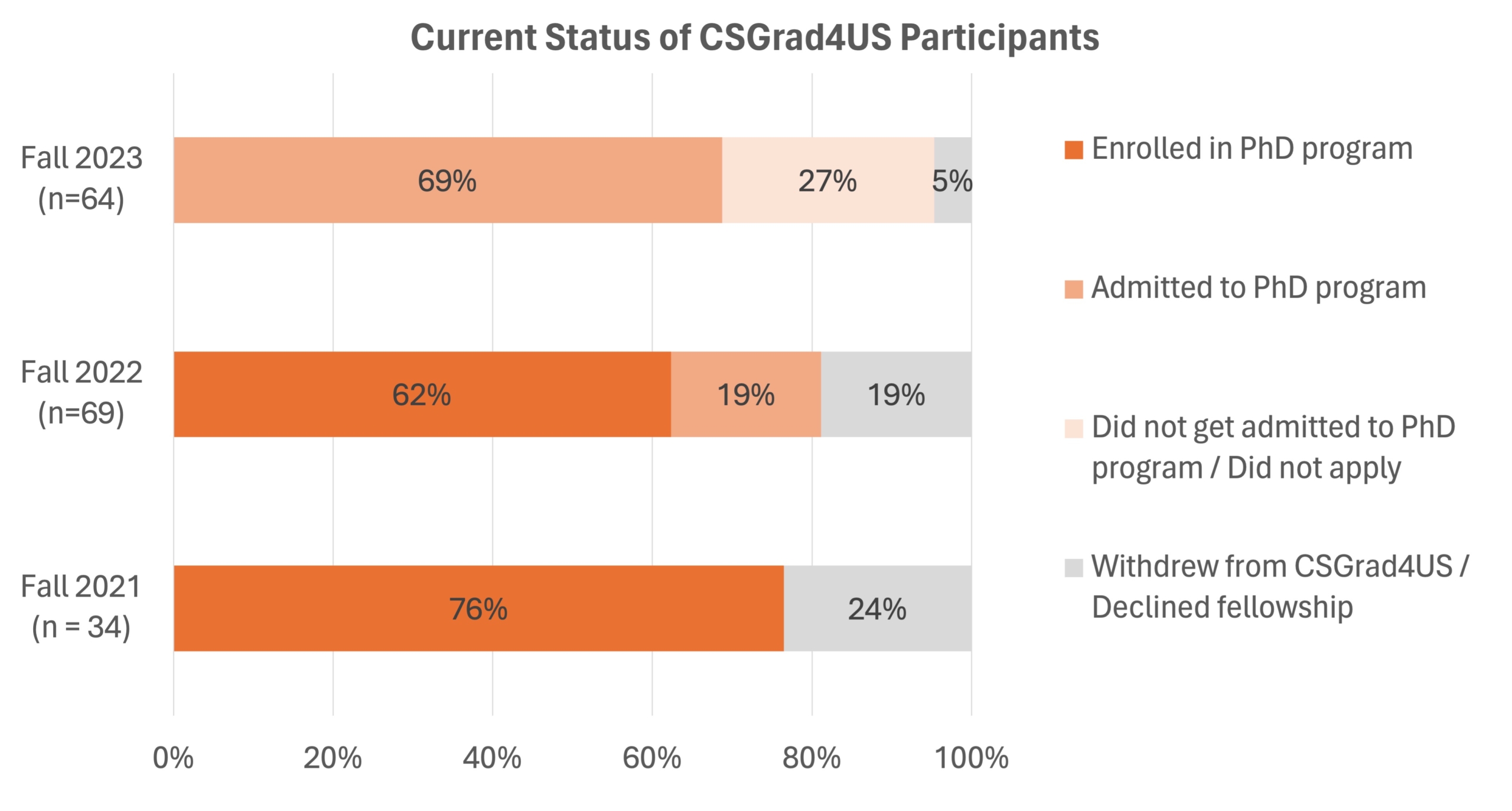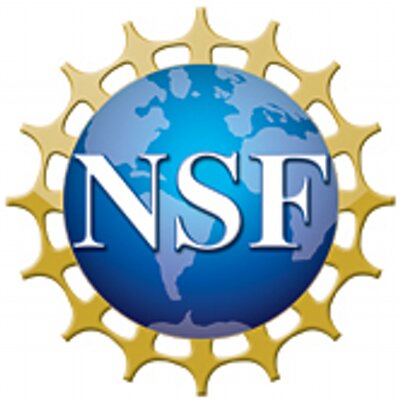- Overview
How does the provision of stipends in REUs affect undergraduate students’ participation in research? This question has been examined in several ways, although there continues to be little systematic investigation of the extent to which stipends (and their size) affect participation. The research described in this summary generally examines stipends as part of a set of factors that may influence REU participation, and it is supplemented with unpublished data from the Center for Evaluating the Research Pipeline’s (CERP) Data Buddies Survey. In addition, this review includes a broader discussion of how financial concerns may impact students’ decisions about their involvement in research.
- The role of stipends in promoting formal research participation
Two studies led by D.R. Economy (Economy et al., 2013; Economy et al., 2014) provide the most direct evidence of the relative importance of stipends in guiding students’ REU decision-making. In an initial study, the researchers surveyed 61 NSF REU Site participants in nine REUs throughout the United States. Respondents were presented with a list of ten items and were asked to indicate which ones were important to them when selecting research program(s) they had applied to and accepted. The most-cited factor in accepting their REU was the stipend, with 69% of respondents indicating this was an important factor. This was slightly higher than the second-most-cited response, which was the research project’s focus (64% of respondents).
In a follow-up study with a larger group of respondents and a modified survey, the researchers used a 6-point Likert scale (rather than a checklist) for measuring the degree of importance of different factors in students’ decisions to accept their REU. Results in this survey revealed that the most important factor was the research project focus (with a mean score of 5.16 out of 6, corresponding to a little above “important”), followed by the stipend (mean = 4.92, or a little below “important”) and the date of their REU offer (mean = 4.54). Across both studies, there were no differences among various student subgroups in their likelihood of indicating stipends were important for them or their ratings of how important they felt the stipend to be. Taken together, these studies underscore that the provision of a stipend may make research participation possible, as such stipends are important for students and rank highly in their decisions about participating in REUs.
In these studies, however, it is difficult to ascertain the extent to which varying stipend amounts affected students’ decisions, since the authors did not ask about this explicitly.[1] One data point that is relevant to this question looks at a comparison of the responses of students who had received one REU offer versus students with more than one offer. If those students with more than one offer rated the importance of the stipend more highly in their REU decision-making than students with only one offer, this might suggest that stipend size helped them decide between two (or more) REU sites. However, results showed that stipends were no more (or less) important for students considering multiple REU offers, relative to students with just one offer. However, other factors did appear to become more important to students when they were choosing between multiple REUs. In the first study, students with more than one REU offer were most likely to cite the date of the offer letter as an important factor in their decisions – unlike students with just one offer, and far more often than stipends. In the second study, students who were accepted into more than one NSF REU research program put greater emphasis than their peers on the importance of activities outside of the lab and on the sites being far from home when making their decisions (Economy et al., 2013; Economy et al., 2014).
An additional analysis was included in Economy and colleagues’ second study to examine those who chose an NSF REU over other research or non-research opportunities. These REU participants were asked in an open-ended format to describe why they chose the REU instead of other opportunities. Stipend-related responses were the fourth-most-named reason (cited by 23% of those respondents), after having a research experience, having a “new” experience, and the site location. The authors conclude that “the stipends that are offered need to be competitive with other academic undergraduate research programs” (Economy et al., 2014, p. 1,403). Thus, this suggests that stipends need to approximate the level of compensation offered by other experiences. Qualitative feedback from students from underrepresented backgrounds discussing their barriers to participation in undergraduate research (and engaged learning experiences more broadly) supports this as well (Finley & McNair, 2013). Notably, however, there is more theorizing than data on the impact of providing larger stipend amounts on REU selection, and this seems to focus more on inter-program competition for undergraduate participants than broadening overall access to research opportunities (e.g., Landis & Dagher, 2001; Mahmud & Xu, 2010).
- Data Buddies Survey data
Available data from the Data Buddies Survey (DBS) do not suggest that concerns about stipend size play an important role in students’ decisions about engaging in formal research. Across several years of data, concerns about pay are the least frequently endorsed reason for non-participation in formal research (e.g., Stout, 2018). Moreover, the percentage of undergraduates citing pay as a reason they would not participate in formal research experiences may be decreasing over time (CERP, 2021).[2]
Although a relatively small percentage of undergraduate respondents overall see low pay as a barrier to research experiences, it is still possible that specific subgroups of students are more concerned about this issue. To test this, CERP separately examined the DBS responses of several groups of students who are underrepresented in computing or who may have more financial concerns that drive their decisions about participating in research. Results from these targeted analyses show that even among these subgroups, only 10% to 15% of students report that concerns about the pay contributed to their reasons for not engaging in research.
Source: Data Buddies Survey, 2020. Center for Evaluating the Research Pipeline, Computing Research Association.
- Using a broader lens: Finances and decisions about extracurricular experiences
Research looking at internship decisions also supports the notion that pay issues exist but are much less of a factor than other issues when students are considering experiences outside of their regular coursework. For example, in a study asking students in an open-ended format about why they had chosen not to do internships, responses revealed that financial concerns were mentioned by only a few students, and that the most common issues were low self-efficacy and barriers related to applying and being accepted into positions (Kapoor & Gardner-McCune, 2020).
Importantly, the financial concerns described by respondents in this study – along with other research and theorizing – suggest a need for conceptions of students’ financial decision-making about research participation that go beyond considerations of the size or provision of compensation. For example:
- Low-income students may need to consider the fact that REU stipends are time-limited, whereas some students need to prioritize work that provides sustained, long-term earnings (Kapoor & Gardner-McCune, 2020, Russell & Dye, 2014).
- Low-income and non-traditional students who are already working in other jobs and considering an REU may face the loss of benefits for themselves or any family members they are supporting if they choose research participation (Bangera & Brownell, 2014; Russell & Dye, 2014).
- Students from underrepresented groups might not have the ability to relocate from their homes for a summer research position, due to family responsibilities (Bangera & Brownell, 2014).
- For some students, acceptance of stipends for research many have implications for their financial aid packages (Hewlitt, 2018).
- Summary
In sum, studies suggest that students feel that the presence of a stipend is important; stipends rank higher than most other factors in selecting a research experience. At the same time, in the few studies found that investigate this issue, few students report concerns about stipends as a barrier to REU participation, a finding which is supported by CERP Data Buddies Survey results. A small amount of data and theorizing raise issues about broader financial considerations among underrepresented groups that may also play a role in students’ decisions about research participation.
- References
Bangera, G., & Brownell, S. E. (2014). Course-based undergraduate research experiences can make scientific research more inclusive. CBE—Life Sciences Education, 13(4), 602-606.
Center for Evaluating the Research Pipeline, (2021). Data Buddies Survey, Unpublished data.
Economy, D. R., Martin, J. P., & Kennedy, M. S. (2013, October). Factors influencing participants’ selection of individual REU sites. In 2013 IEEE Frontiers in Education Conference (FIE) (pp. 1257-1259). IEEE.
Economy, D. R., Sharp, J. L., Martin, J. P., & Kennedy, M. S. (2014). Factors associated with student decision-making for participation in the research experiences for undergraduates program. The International journal of engineering education, 30(6), 1395-1404.
Finley A., McNair T. (2013). Assessing underserved students’ engagement in high-impact practices. Washington, DC: Association of American Colleges & Universities.
Hewlett, J. A. (2018). Broadening participation in undergraduate research experiences (UREs): The expanding role of the community college. CBE—Life Sciences Education, 17(3), es9.
Kapoor, A., & Gardner-McCune, C. (2019, February). Understanding CS undergraduate students’ professional development through the lens of internship experiences. In Proceedings of the 50th ACM Technical Symposium on Computer Science Education (pp. 852-858).
Landis, E. N., & Dagher, H. J. (2001). Research Experiences for Undergraduates: Advanced Engineered Wood Composites.
Mahmud, S. M. & Xu, C. Z. (2010). REU Program in Telematics and Cyber Physical Systems (TCPS): Sharing Strategies, Experience and Lessons Learned to Help Others. Retrieved from: http://webpages.eng.wayne.edu/~ad5781/PersonalData/PubPapers/ASEE_Jun10.pdf.
Russell, H., & Dye, H. (2014). Promoting REU participation from students in underrepresented groups. Involve, a Journal of Mathematics, 7(3), 403-411.
Stout, J. (2018). Understanding Why Many Undergraduate Students Don’t Participate in Research. Computing Research News, 30 (3).
[1] The survey item in both studies was listed as “stipend.” Thus, there is some ambiguity in how respondents might have been interpreting it.
[2] 21% in 2017 and 14% in 2020. However, it should be noted that the comparability of responses is somewhat limited due to a change in which respondents answered the question in 2017 versus 2020. In 2017, all respondents who had not participated in formal research were asked for their reasons why, whereas in 2020 only respondents who had not participated in formal research and did not plan to in the future were asked those questions.












 This post was originally published in CRA Bulletin on April 4, 2022
This post was originally published in CRA Bulletin on April 4, 2022 
